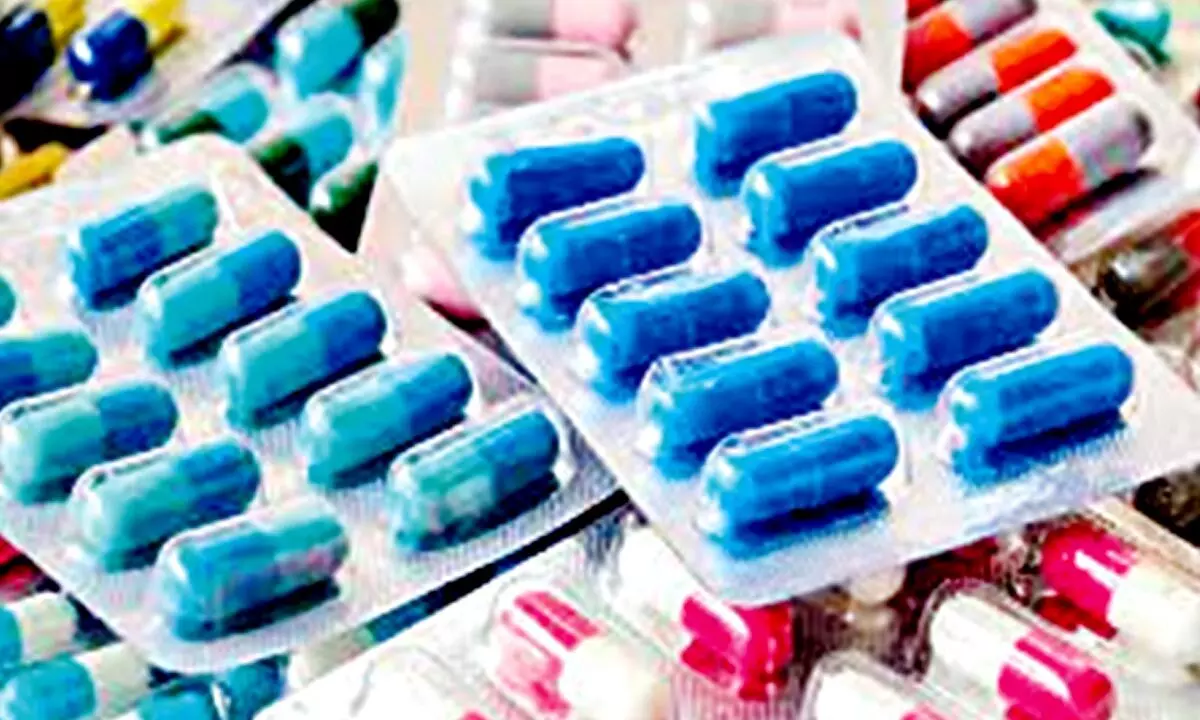Rising input costs continue to take a toll on pharma industry
Due to supply chain disruptions & prevailing lockdown in China, prices of APIs/ KSM rose between 25-120% while, prices of excipients increased from 15-200% during last 12-18 months
image for illustrative purpose

Though India has, over the years, adorned the epithet of 'the pharmacy of the world' as it has been exporting life-saving medicines to the entire world, including developed nations, India has been critically dependent on Chinese imports for basic raw materials that are used to produce some of the essential medicines
Over-dependence on China for active pharmaceutical ingredients (APIs) has always been a thorn in the flesh of Indian drug manufacturers as the prices of APIs tend to go through the roof whenever there is any disruption in China which was evident in the first months the year 2020 due to the Covid-19 outbreak there.
A spurt in prices of raw materials imported from China along with a significant rise in freight, packaging material and transportation costs, in the wake of the Covid-19 pandemic, has derailed the Indian pharmaceutical industry's cost-effectiveness and expansion plans. At present, the industry is witnessing multiple challenges such as rising prices of APIs and key starting materials (KSM), the surge in solvent prices, rise in freight and energy cost and continued pricing pressure in the US generic market. Due to supply chain disruptions and prevailing lockdown in China, the prices of some APIs/ KSM have increased between 25 per cent and 120 per cent while prices of excipients have risen between 15 per cent-200 per cent during the last 12-18 months.
Apart from the cost of raw material, the cost of packing material also saw an upward movement of 25-100 per cent during the past 12-18 months. The cost of power, fuel and coal witnessed a rise of more than 50 per cent during the last one year while the cost of freight saw a jump of more than 2 times. Moreover, API prices of certain basic fever and pain relief drugs have also risen by 130 per cent and major life-saving drugs have seemed to rise by 120 per cent during this period. In addition to increase in prices of raw materials and packing materials, sea freight rates have gone up to 300 per cent with freight costs from China shooting up 250 per cent from pre-pandemic level.
Although the pharmaceutical industry has risen and delivered to the challenges posed by Covid-19 and has come to be known as the sunrise sector, inflation has bitten pharmaceuticals the hardest. Raw material, energy, operating, and transportation expenses have skyrocketed around the world. Obviously, the Indian pharmaceutical industry is battling rising input costs from China, freight, packaging material, and transportation costs, as a result of the pandemic.
This price rise has further proved total dependency on imports from China. Though the country has, over the years, adorned the epithet of 'the pharmacy of the world' as it has been exporting life-saving medicines to the entire world, including developed nations, India has been critically dependent on Chinese imports for basic raw materials that are used to produce some of the essential medicines.
It would be worthwhile to mention here that till two decades ago, the country has been producing most of the APIs required in the country and even exporting a major part of the same to Europe and the US. But, the high cost of production because of comparatively low scale of operations and higher input costs rendered the domestic API production economically unviable. And stringent environmental regulations added fuel to the fire, forcing the pharma companies to turn to China which emerged as a producer of cheap APIs with huge capacities and lower cost of production.
Of course, the Indian government is seized of the seriousness of the matter. It is clear from the fact that for making the country self-reliant in the pharma sector, the DoP in consultation with the NITI Aayog, had come out with a notification in July, 2020 for Rs 3,000 crore bulk drug parks' promotion scheme and Rs. 6,940 crore production linked incentive (PLI) scheme for promotion of domestic manufacturing of critical KSMs, DIs and APIs in India.
The Indian government's policy intervention is praiseworthy, given the ever deteriorating Sino-Indian border relations. If the ongoing border skirmishes between India and China in the Ladakh region reach a flashpoint and as a retaliatory measure China decides to stop export of APIs and other raw materials to India, the result would be disastrous for the country as the industry does not have any alternate sources to procure these basic raw materials. This would mean that production of several essential and life-saving drugs required within the country will be in trouble. By introducing the PLI scheme, the Indian government wanted to end this scenario. Of course, the government has taken a welcome step as it is intended to restore the Indian API Industry's past glory.
(The author is freelance journalist with varied experience in different fields)

